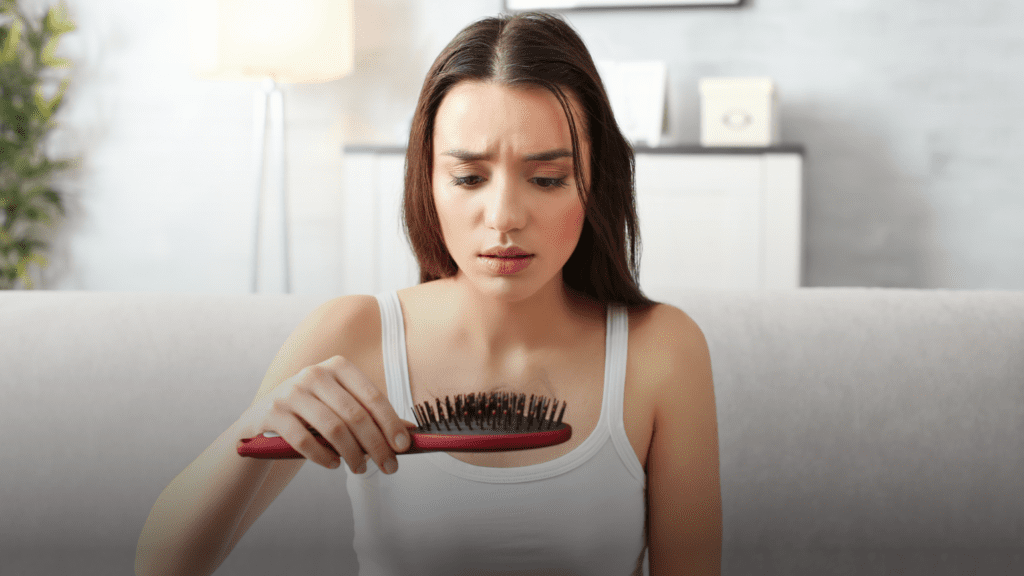
Are you experiencing unexpected hair loss while on birth control? Many women wonder if there’s a connection between their contraceptives and shedding locks. Let’s delve into this topic to uncover the truth behind the rumors and provide clarity on the relationship between birth control and hair loss.
How Do Birth Control Pills Affect Hormonal Balance and Hair Health?
Birth control pills are designed to alter hormonal levels in the body to prevent pregnancy. However, the hormonal changes they induce can sometimes impact hair health. Estrogen and progestin, the hormones present in most birth control pills, can influence the hair growth cycle. Estrogen, for example, may promote hair growth, while progestin can have the opposite effect by triggering hair shedding. This hormonal imbalance can lead to a condition known as androgenic alopecia, commonly referred to as female pattern hair loss.
Which Types of Birth Control Are Known to Increase the Risk of Hair Loss?
Not all birth control methods carry the same risk of causing hair loss. Certain types, particularly those containing higher levels of androgens or progestin, are more likely to affect hair health. Progestin-dominant contraceptives, such as some progestin-only pills, implants, and hormonal IUDs, have been associated with an increased risk of hair loss compared to estrogen-based contraceptives. Understanding the hormonal composition of your birth control method can help assess its potential impact on hair follicles.
Myth: Birth Control Causes Permanent Hair Loss
One common misconception is that birth control can cause permanent hair loss. While some individuals may experience persistent shedding while on contraceptives, the majority of cases involve temporary hair thinning. Hair typically regrows once hormonal balance is restored, either by discontinuing the birth control or adjusting the dosage. Permanent hair loss due to birth control is rare and usually linked to underlying hormonal imbalances or genetic factors.

Myth: All Birth Control Methods Pose Equal Risk of Hair Loss
Another myth is that all birth control methods carry the same risk of causing hair loss. In reality, the likelihood of experiencing hair loss varies depending on the type of contraceptive and its hormonal composition. Estrogen-based contraceptives, such as combination pills and the patch, tend to have a lower risk of impacting hair health compared to progestin-only methods. It’s essential to discuss the potential side effects of different birth control options with a healthcare provider to make an informed decision.
What Factors Increase the Risk of Hair Loss While on Birth Control?
Several factors can increase the likelihood of experiencing hair loss while using birth control. These include genetics, hormonal sensitivity, underlying medical conditions, and lifestyle factors. Individuals with a family history of hair loss or hormonal imbalances may be more susceptible to contraceptive-induced shedding. Additionally, certain medications, such as antidepressants or acne treatments, can interact with birth control hormones and exacerbate hair loss.
How Can You Minimize the Risk of Hair Loss While Using Contraceptives?
While some risk factors for contraceptive-induced hair loss are beyond control, there are steps you can take to minimize the risk and support hair health. Opting for birth control methods with lower androgenic activity, such as combination pills containing low-dose estrogen, may reduce the likelihood of experiencing hair loss. Additionally, maintaining a healthy lifestyle, managing stress levels, and incorporating hair-nourishing nutrients into your diet can help mitigate potential side effects.
What Non-Hormonal Birth Control Options Are Available?
If you’re concerned about the potential impact of hormonal contraceptives on your hair health, non-hormonal birth control methods offer an alternative approach. Barrier methods like condoms, diaphragms, and cervical caps provide contraception without altering hormonal balance. Additionally, copper IUDs, which do not contain hormones, offer long-term contraceptive benefits without the risk of hormonal side effects. Discussing non-hormonal options with a healthcare provider can help find a suitable method that meets your contraceptive needs while safeguarding hair health.
What Are the Pros and Cons of Different Contraceptive Options concerning Hair Health?
Each contraceptive method has its own set of advantages and drawbacks concerning hair health. While non-hormonal options eliminate the risk of hormonal side effects, they may be less effective or require more frequent maintenance compared to hormonal contraceptives. On the other hand, hormonal birth control methods offer reliable pregnancy prevention but may pose a higher risk of hair loss for some individuals. Considerations such as convenience, effectiveness, and potential side effects should be weighed carefully when choosing a birth control option.
How Can Lifestyle Modifications Support Hair Health While on Birth Control?
In addition to selecting the right birth control method, implementing lifestyle changes can help promote hair growth and minimize the risk of shedding. Managing stress through relaxation techniques like meditation or yoga can prevent stress-induced hair loss, while regular exercise improves blood circulation to the scalp, promoting hair follicle health. Adequate hydration, balanced nutrition, and sufficient sleep are also essential for maintaining optimal hair health while on birth control.

What Natural Remedies Can Help Combat Hair Loss?
Several natural remedies and supplements are believed to support hair growth and minimize shedding. Biotin, a B vitamin found in foods like eggs and nuts, is often recommended for strengthening hair follicles and promoting growth. Other supplements like iron, zinc, and vitamin D play crucial roles in hair health and may help offset nutrient deficiencies associated with hormonal contraceptives. Incorporating these nutrients into your diet or taking supplements under the guidance of a healthcare professional can support overall hair health.
Conclusion:
In conclusion, while birth control can influence hair health for some individuals, it’s essential to separate fact from fiction and make informed decisions about contraceptive options. Understanding the hormonal mechanisms behind birth control-induced hair loss, debunking common myths, and identifying risk factors can empower individuals to take proactive steps to safeguard their hair health. Whether opting for hormonal or non-hormonal contraceptives, prioritizing lifestyle modifications and incorporating hair-nourishing remedies can help mitigate potential side effects and promote healthy, vibrant hair. Remember to consult with a healthcare provider for personalized advice tailored to your unique needs and concerns. By staying informed and proactive, you can maintain beautiful, resilient hair while effectively managing your reproductive health.

